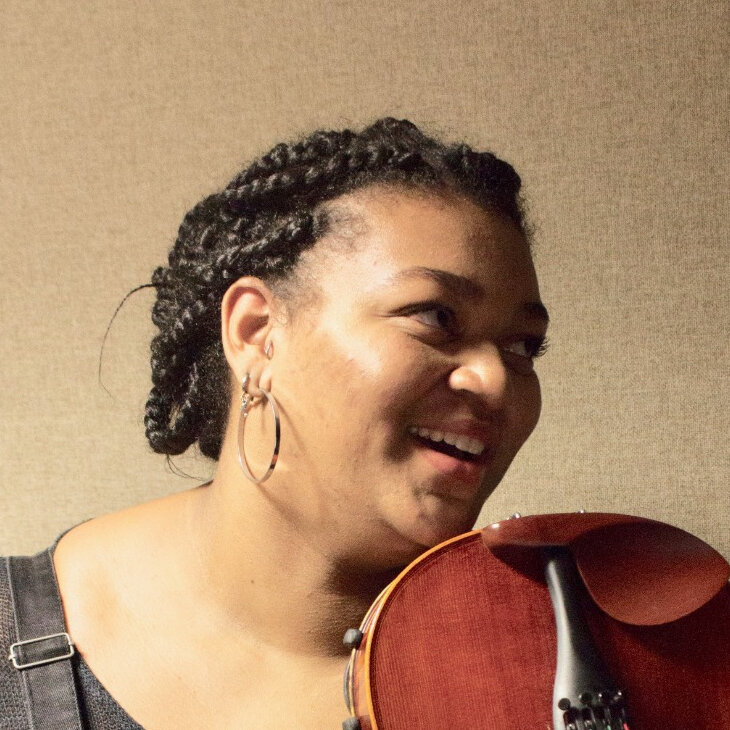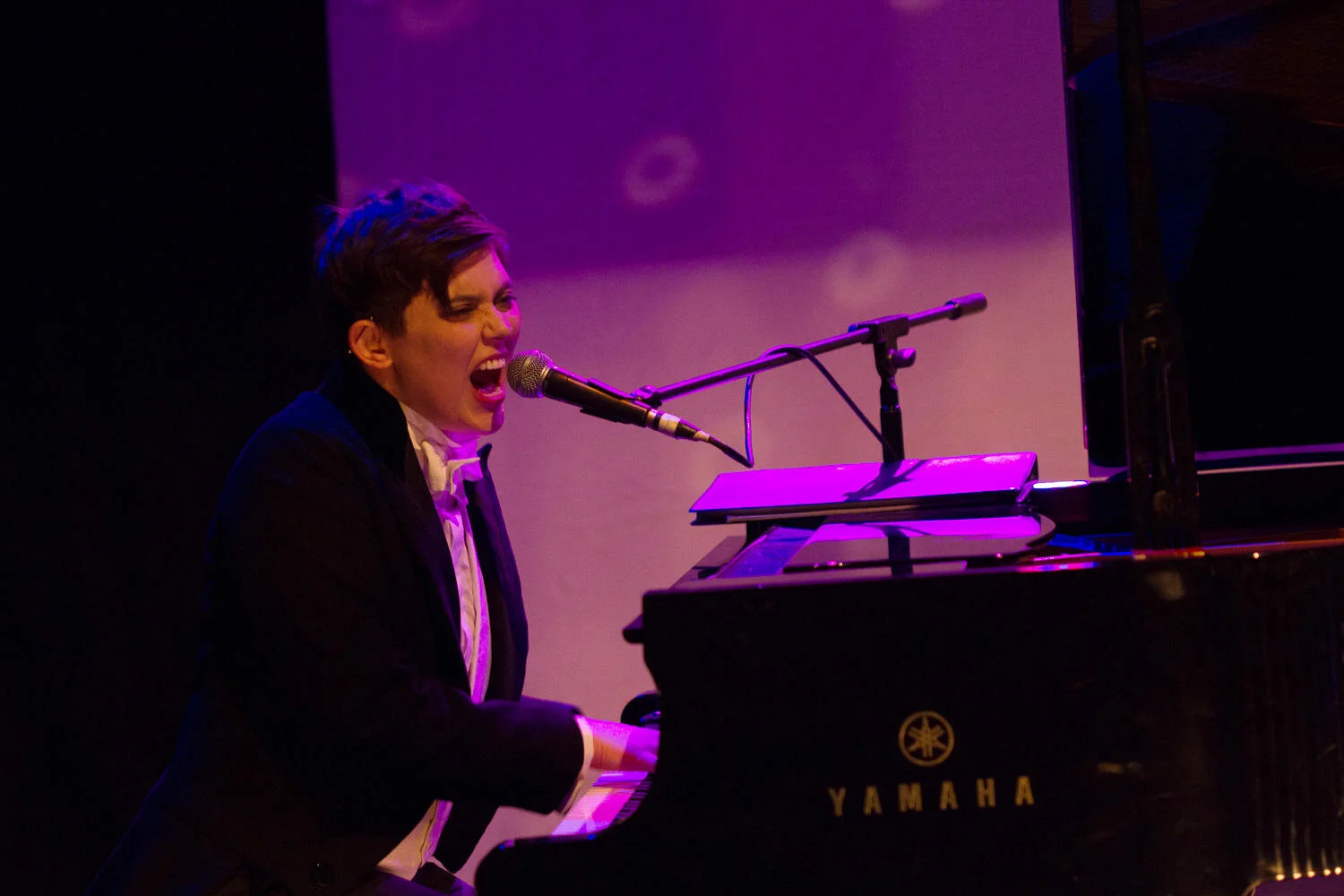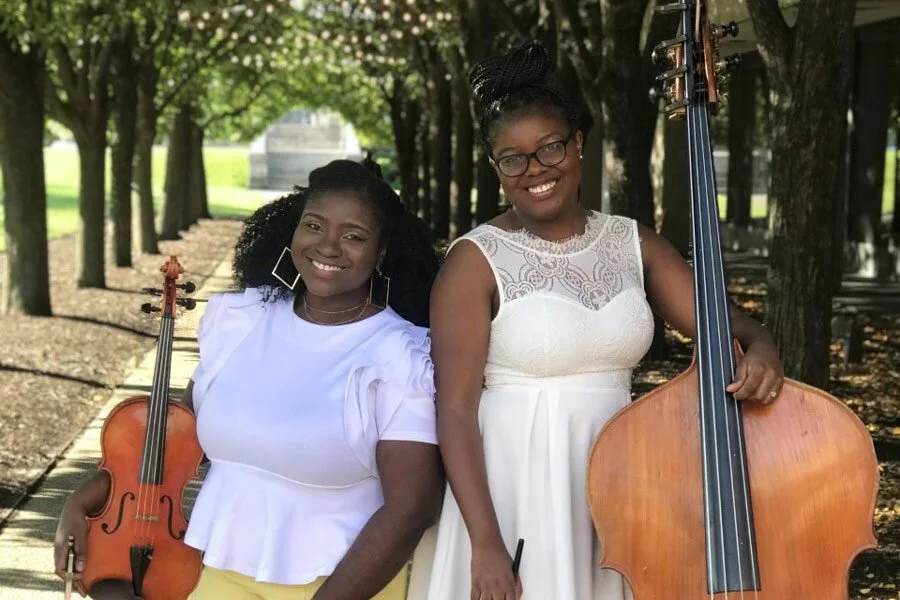10 Black Classical Composers
Here is a selection of black composers from the 18th, 19th, 20th and 21st centuries whose music we’re exploring at the moment. To give a small flavour of their music, we’ve made an accompanying Spotify playlist. We’ve written separately about 10 Contemporary Black Composers, which also comes with a playlist, so check that one out too and follow Alternative Classical on Spotify for more. We have also written about 17 UK Organisations Supporting Black People in the Arts, highlighting some of the charities, non-profits and social enterprises championing diversity and promoting the voices of black people in classical music, opera, theatre, dance and museums. If you like our work, catch us @alterclassical on Instagram, Twitter and Facebook and sign up for our mailing list using the button below.
Samuel Coleridge-Taylor
Samuel Coleridge-Taylor (1875-1912) was an English composer, conductor and political activist. His father began teaching him the violin at a young age, and he studied at the Royal College of Music, composing under the guidance of Charles Stanford. Incorporating black traditional music with concert music – with compositions such as African Suite, African Romances and Twenty Four Negro Melodies – he was a progressive writer of his time. Despite the black community’s ongoing battle against racism, his piece Hiawatha’s Wedding Feast was so popular that he embarked on three tours of the United States, and was invited by President Theodore Roosevelt to visit the White House. Coleridge-Taylor was only 37 when he died of pneumonia.
Florence Price
Florence Price (1887-1953) was the first African-American woman to be recognised as a symphonic composer, and the first to have a composition played by a major orchestra (her Symphony in E minor was performed by the Chicago Symphony Orchestra in 1933). Price was born in Arkansas to a music teacher mother and a dentist father. Following encouragement from her mother, she studied at the New England Conservatory of Music. Even though her training was steeped in European tradition, Price's music consists mostly of the American idiom and reveals her Southern roots. Being deeply religious, she frequently used the music of the African-American church as material for her arrangements.
Julius Eastman
Julius Eastman (1940-1990) was an American composer, pianist, vocalist and dancer, whose music plays a vital part in the emergence of post-minimalism. His pieces addressed his status as a black gay composer in a white-dominated musical elite, in composition titles such as Evil Nigger and Gay Guerrilla. During his lifetime he achieved more notoriety as a performer than as a composer, touring with Meredith Monk and performing at Lincoln Center with Pierre Boulez. In his later years, he got caught up in drugs or mental illness or both. He was evicted from his home and made no attempt to recover recordings of his own music, which had been dumped on the street by his old landlord. Eastman died homeless and alone in New York, and his death was unreported until eight months later, which was when his friends and colleagues got the news.
Undine Smith Moore
Undine Smith Moore (1904-1989), the ‘Dean of Black Women Composers’, was a composer, music professor and co-founder of the Black Music Center at Virginia State College, which aimed to educate members about the ‘contributions of black people to the music of the United States and the world’. Her output includes over 100 pieces, only 26 of which were published during her lifetime. Her most significant work, Scenes from the Life of a Martyr (based on the life of Martin Luther King) premiered at Carnegie Hall in 1981 and was nominated for a Pulitzer Prize. She said: “One of the most evil effects of racism in my time was the limits it placed upon the aspirations of blacks, so that though I have been ‘making up’ and creating music all my life, in my childhood or even in college I would not have thought of calling myself a composer or aspiring to be one.”
William Grant Still
William Grant Still (1895-1978) achieved many ‘firsts’: he was the first black composer to have a symphony performed by a major orchestra (the African-American Symphony by the New York Philharmonic in 1935), the first black composer to have an opera performed by a major opera company, (Troubled Island by the New York City Opera in 1949), and also the first to conduct a major American symphony orchestra (the Los Angeles Philharmonic in 1936). Still composed nearly 200 works, including five symphonies and nine operas. He received a whole host of honours, including the Guggenheim fellowship and 9 honorary doctorates from colleges across the US.
Julia Perry
Born in Kentucky, Julia Perry (1924-1979) was a composer and teacher who combined European classical and neo-classical training with her African-American heritage. She began her studies at Westminster Choir College in Princeton, then was later tutored by Nadia Boulanger (the foremost teacher of composition in the 20th century) in Paris, during which time she was awarded the Boulanger Grand Prix for her Viola Sonata. Perry also wrote two operas and an opera ballet as well as 12 symphonies. In 1973, Perry suffered a series of strokes which left her right side paralysed. She taught herself how to write with her left hand so she could continue to compose. Unfortunately, her music has not been widely recorded.
George Walker
George Walker (1922-2018) was the first African American to win the Pulitzer Prize for Music (in 1996, for his song cycle Lilacs). His biography is a series of firsts: the first black graduate of the Curtis Institute in Philadelphia (1945), the first black musician to play New York’s Town Hall (also 1945), the first black recipient of a doctorate from the Eastman School (1955), the first black tenured faculty member at Smith College (1961) to name a few. Many of his nearly 100 compositions have been recorded, ranging from symphonic works and concertos to intimate songs and solo piano pieces. Tom Service writes: “While there are traces of Walker’s musical heroes – such as Hindemith and Stravinsky – in his musical language, he has created a distinctive world that is modernist and multifaceted yet richly communicative.”
Chevalier de Saint-Georges
Joseph Bologne, Chevalier de Saint-Georges (1745-1799) was a composer, virtuoso violinist, champion fencer and army leader. A contemporary of Mozart, he is known for being one of the first classical composers of African ancestry. He wrote two symphonies, several concertos, much chamber music and at least six operas. Saint-Georges was born in Guadeloupe to a wealthy plantation owner and his wife's African slave. He was educated in France and became the leader of a good Parisian orchestra, performing his concertos with them. During the French Revolution, he served as a colonel of the Légion St.-Georges, the first all-black regiment in Europe. Throughout his life Bologne pursued both fencing and music which was supported and funded by his father, despite being of mixed heritage by a woman who wasn’t his wife.
Margaret Bonds
Composer and pianist Margaret Bonds (1913-1972) was born in Chicago to musicians. Her parents separated when she was two and she was subsequently raised by her mother. Many leading artistic figures would visit the house, including Florence Price, who became her piano and composition teacher. In 1929, she was one of the only black students to attend Northwestern University, where faced constant racism and prejudice (she was only allowed to study there but not live or use their facilities). Aged 22 she became the first black soloist to appear with the Chicago Symphony Orchestra. She experienced success as a performer and classical composer, and also branched out to other genres, writing music for the Glenn Miller Orchestra, Louis Armstrong and Cab Calloway.
George Bridgetower
George Bridgetower (1780-1860) was a virtuoso violinist and composer born to a Polish mother and a West Indian father, who was a servant in Prince Esterházy’s Hungarian castle, where the established composer Joseph Haydn was working as Kappelmeister. During his childhood, Bridgetower performed many successful concerts in England and France, earning him the interest of the Prince of Wales (George IV) who paid for his musical education. Bridgetower then became the principal violinist in his private orchestra for the next 14 years. He met and performed with Beethoven in Vienna in 1803. Beethoven dedicated his Violin Sonata No.9 to Bridgetower and gifted him a tuning fork (which can now be found in the British Library). He died in Peckham and is buried in Kensal Green Cemetery.


















